Discover Lifeselfmastery's podcast I Startups I Venture Capital
Lifeselfmastery's podcast I Startups I Venture Capital

Lifeselfmastery's podcast I Startups I Venture Capital
Author: Rohit Malhotra
Subscribed: 3,504Played: 51,652Subscribe
Share
© Rohit Malhotra
Description
Life Self Mastery Podcast is an interview based show where I interview online entrepreneurs who started their businesses and scaled up their businesses to improve their lifestyles.
Previous guests include Guy Kawasaki, Brad Feld, James Clear, Shu Nyatta, Ida Tin, Elizabeth Yin, Polina Pompliano, Evgenia Plotnikova, Anna Khan, Minnie Ingersoll, Sridhar Ramaswamy, Mac Conwell, Danielle Strachman, Jake Gibson, Wes Kao, Brian Requarth, Vivek Sodera, Eric Siu, Amit Garg, Nischal Shetty, Pranav Pai, Nir Eyal, Paul Shapiro, Nick Huber, Rob Walling, Andrew Dsouza, Fabrice Grinda, and 300+ incredible guests.
partnergrow.substack.com
Previous guests include Guy Kawasaki, Brad Feld, James Clear, Shu Nyatta, Ida Tin, Elizabeth Yin, Polina Pompliano, Evgenia Plotnikova, Anna Khan, Minnie Ingersoll, Sridhar Ramaswamy, Mac Conwell, Danielle Strachman, Jake Gibson, Wes Kao, Brian Requarth, Vivek Sodera, Eric Siu, Amit Garg, Nischal Shetty, Pranav Pai, Nir Eyal, Paul Shapiro, Nick Huber, Rob Walling, Andrew Dsouza, Fabrice Grinda, and 300+ incredible guests.
partnergrow.substack.com
270 Episodes
Reverse
I am excited to have Michael Colonnese, the CEO of SV Academy, a pioneering talent platform that helps companies hire pre-trained sales and customer success professionals—with no fees and no catch. In this conversation, Michael Colonnese, CEO of SV Academy, discusses the innovative approaches to talent acquisition and training in the sales sector. He shares insights on the skills gap, the importance of potential over experience in hiring, and the transformative impact of tech sales careers. Michael also addresses the challenges of onboarding, the role of AI in sales, and the need for a reformed education model that aligns with job market demands. The discussion emphasizes the importance of personalized education and the integration of sales strategies in a product-led growth environment. Timestamps 00:00 Introduction to Michael Colonnese and SV Academy 01:11 The Journey into Startups and Skills Gap 02:38 Innovative Business Models in Talent Training 04:28 Understanding Student Demographics and Career Changes 05:07 Income Transformation in Tech Sales 06:14 Ideal Personas for Sales Roles 07:44 Myths in Hiring Entry-Level Sales Talent 08:47 Identifying Grit in Sales Hires 10:08 Onboarding Challenges for SDRs 11:33 The Role of AI in Sales 13:06 Cold Calling Strategies for SDRs 14:32 Multi-Channel Outreach Strategies 15:43 Tools for Sales Prospecting 16:40 Client Acquisition Strategies 17:38 The Broken Education Model 20:09 Trends in Personalized Education 22:04 Sales Pipeline Ownership in Different Companies 23:17 Preparing for Technical Sales Roles 24:44 Avoiding Bad Hires Under Pressure 25:53 Integrating Sales into Product-Led Growth 27:11 The Future of Outbound Sales with AI 28:11 Scaling Sales Teams Effectively 29:20 Innovating Business Models in Education 30:24 Applying Military Strategies to Business 31:33 Reflections on Scaling SV Academy Michael’s Links LDN– https://www.linkedin.com/in/michaelcolonnese/ Website – https://sv.academy/ My Links Podcast: https://lifeselfmastery.com/itunes Newsletter: https://partner-grow.beehiiv.com/subscribe YouTube: youtube.com/lifeselfmastery Twitter: https://twitter.com/rohitmal LinkedIn: https://www.linkedin.com/in/rohit857/
I am thrilled to have Cesare Pesci, a Junior Associate at YOBE Ventures, where he combines a background in investment banking, sustainable finance, trading, consulting, and sales to support growth-stage and tech founders. In this conversation, Cesare Pesci , a junior associate at Yobe Ventures, discusses his journey into venture capital, the dual role of investment and advisory, and the importance of networking. Cesare shares insights on evaluating founders, the significance of sustainability in investing, and the differences between European and US ecosystems. He emphasises the value of failure as a learning process and offers advice for aspiring venture capitalists. Timestamps 00:00 Introduction to Cesare Pesci and His Journey 02:38 Career Progression in Venture Capital 05:23 The Dual Role of Investment and Advisory 06:52 Evaluating Founders and Startups 10:20 Lessons from Early Stage Founders 11:32 Financial Modeling for Startups 12:53 Advisory Support vs. Traditional VC 14:30 Comparing European and US Ecosystems 16:17 Integrating Sustainability in VC Investing 17:40 Sales and Finance: A Winning Combination 19:08 Networking in Venture Capital 20:48 Reflecting on Career Milestones 22:18 Recommended Business Books 24:00 Advice for Aspiring VCs Cesare’s Links LDN– https://www.linkedin.com/in/cesare-pesci-99b09021b/ Hubble - https://www.hubble.social/cesarepesci My Links Podcast: https://lifeselfmastery.com/itunes Newsletter: https://partner-grow.beehiiv.com/subscribe YouTube: youtube.com/lifeselfmastery Twitter: https://twitter.com/rohitmal LinkedIn: https://www.linkedin.com/in/rohit857/
I am excited to have Gaurav Gulati, co-founder and COO of Innov8, which was acquired by OYO. Gaurav is a GP at Aroa Venture Partners, which he backs startups that deliver strong returns and meaningful impact. In this conversation, Gaurav Gulati, founder of Aroha Venture Partners, shares his journey from the US to India, his experiences in building startups, and the founding of his mission-driven VC firm. He discusses the importance of a global perspective in venture capital, the challenges of supporting founders, and the evolving landscape of AI and pricing strategies in startups. Gaurav emphasises the significance of partnerships with founders and the need for resilience in the startup ecosystem, and much more. Timestamps 00:00 The Journey Begins: From the US to India 02:46 Global Perspectives: Shaping Venture Capital in India 05:21 Building and Exiting Startups: Innovate and Purist 08:30 Aroha Venture Partners: The Birth of a New Fund 11:08 Understanding Aroha: The Meaning Behind the Name 13:46 Evaluating Early Stage Founders: Jockey vs. Horse 18:39 Multi-Sector, Multi-Stage Approach: Risks and Rewards 21:29 Supporting Founders: Beyond Capital 26:10 New Venture Programs: What We Look For 27:14 Navigating Startup Programs and Applications 28:25 Identifying Problems and Solutions in Startups 29:28 The Shift in Coding and MVP Development 31:41 The Evolution of Computer Science Education 34:25 The Future of Employment in Tech 36:50 Pricing Strategies for AI and SaaS Companies 39:45 Market Strategies for Indian Startups 42:18 Opportunities in AI and Infrastructure 45:17 Reflections on the Journey and Future Aspirations Gaurav’s Links LDN– https://www.linkedin.com/in/gulatigr Website – https://www.aroaventures.com/ My Links Podcast: https://lifeselfmastery.com/itunes Newsletter: https://partner-grow.beehiiv.com/subscribe YouTube: youtube.com/lifeselfmastery Twitter: https://twitter.com/rohitmal LinkedIn: https://www.linkedin.com/in/rohit857/
I am excited to have Clay Norris is a GP at Outlaw and founder of ConfluenceVC, known for pioneering "narrative capital"—leveraging media to build venture scale. In this conversation, Clay Norris, a General Partner at Outlaw and founder of Confluence VC discusses his journey into venture capital, the importance of building an audience, and the concept of narrative capital. Clay shares insights on fundraising challenges for emerging managers, portfolio construction strategies, and the evolving landscape of venture capital, including the impact of AI and the role of founders in running their own funds. The discussion emphasizes the need for GPs to craft compelling narratives and build relationships to succeed in a competitive market. Timestamps 00:00 Introduction to Venture Capital and Clay Norris 03:14 Building an Audience and Content Strategy 06:28 Crafting a Compelling Narrative 09:17 Emerging Managers and Fundraising Challenges 11:21 Portfolio Construction Strategies 13:41 Reserves and Investment Strategies 17:48 The Evolution of VC and Multi-Stage Funds 20:58 Founders Running Their Own Funds 23:10 Winning Competitive Deals 24:46 AI and the Future of Venture Capital 27:40 The Changing Landscape of SaaS and VC 29:45 Balancing Personal and Institutional Brands 31:40 Skills for Future General Partners Clay’s Links LDN– https://www.linkedin.com/in/cbnorris/ Website – outlaw.vc Confluence - https://confluencevcweekly.beehiiv.com/ My Links Podcast: https://lifeselfmastery.com/itunes Newsletter: https://partner-grow.beehiiv.com/subscribe YouTube: youtube.com/lifeselfmastery Twitter: https://twitter.com/rohitmal LinkedIn: https://www.linkedin.com/in/rohit857/
I am excited to have Sameer Narkar, the founder of Konnect Insights. This unified customer experience management platform brings together social listening, omni-channel ticketing, analytics, and AI under one roof. In this conversation, Sameer Narkar, founder of Konnect Insights, shares his journey of building a successful SaaS company focused on customer experience management. He discusses the importance of bootstrapping, the role of AI in enhancing customer interactions, and strategies for global expansion. Sameer emphasises the need for effective sales teams, the evolution of product management roles, and the impact of AI on job markets. He also touches on pricing strategies, the significance of brand logos versus revenue, and fostering a people-first culture within the organisation. Timestamps 00:00 The Genesis of Konnect Insights 04:12 Bootstrapping Success: The Journey Without Funding 10:02 AI in Customer Experience: The Future Unveiled 14:03 Defensibility in a Competitive SaaS Landscape 17:16 Pricing Strategies: Shifting from Seat-Based to Usage-Based 19:13 Evolving Product Management: The Role of Teams 23:16 The Future of Engineering and AI's Impact on Jobs 28:02 AI in Customer Support: A New Era of Experience 30:18 The Impact of AI on Jobs 31:33 Strategies for Global Expansion 34:43 Hiring for Sales and Partnerships 38:01 Building a Sales Playbook 40:22 The Role of Discounts in Sales 43:55 Quality of Clients vs. Revenue 48:05 Building a People-First Culture 50:08 Future Product Innovations Sameer’s Links LDN– https://www.linkedin.com/in/sameernarkar Website - https://konnectinsights.com/ My Links Podcast: https://lifeselfmastery.com/itunes Newsletter: https://partner-grow.beehiiv.com/subscribe YouTube: youtube.com/lifeselfmastery Twitter: https://twitter.com/rohitmal LinkedIn: https://www.linkedin.com/in/rohit857/
I am thrilled to have Dario De Wet, a VC investor and founder of LTV Capital, and managing director at Monza Group International. In this conversation, Dario De Wet shares his entrepreneurial journey from selling Game Boy emulators in South Africa to becoming a venture capital investor and founder of LTV Capital. He discusses the unique entrepreneurial spirit in South Africa, the balance between his passion for motorsport and his VC career, and the evolution of his investment strategies. Dario emphasises the importance of understanding the venture capital landscape, the impact of AI on startups, and the challenges of navigating high valuations and IPOs. He also reflects on the metrics that matter in VC and the future of billion-dollar funds. Timestamps 00:00 Dario's Entrepreneurial Journey 04:46 The South African Entrepreneurial Spirit 07:17 Balancing Motorsports and Venture Capital 10:53 Transitioning to Jumo and Anthemis Group 17:14 Founding LTV Capital and Investment Thesis 21:51 Distinguishing True Investors from Asset Gatherers 23:59 The Impact of AI on SaaS and Venture Capital 26:09 Sustainability of Billion Dollar VC Funds 27:34 Emerging Managers vs. Billion Dollar Funds 28:34 Factors Influencing IPOs 30:09 Market Liquidity and Investor Sentiment 32:09 US vs. UK IPO Landscape 33:57 Understanding VC Metrics: TVPI and DPI 36:02 Navigating High Valuations in AI Funding 38:37 Investment Strategies in Today's Market 41:09 The Reality of Unicorn Valuations 42:25 Challenges for B2B Startups 43:47 Lessons from 50 Cent's Hustle 45:44 Building Confidence in VC Careers Dario’s Links LDN– https://www.linkedin.com/in/dariodewet/ LTV Capital - https://www.ltvcapital.co/ Course - How to become a successful emerging manager My Links Podcast: https://lifeselfmastery.com/itunes Newsletter: https://partner-grow.beehiiv.com/subscribe YouTube: youtube.com/lifeselfmastery Twitter: https://twitter.com/rohitmal LinkedIn: https://www.linkedin.com/in/rohit857/
I am excited to have Shashank Randev — a seasoned operator turned investor and the Founder & General Partner at 247VC, one of India’s boldest new seed funds. Before launching 247VC, Shashank co-founded 100X.VC, where he backed over 180 startups and helped pioneer the iSAFE note in India. In this conversation, Shashank Randev, a seasoned operator and investor, discusses his journey from 100XVC to founding 247VC. We explore the evolving landscape of venture capital in India, the importance of backing diverse founders, common mistakes made by pre-seed founders, and the unique position of 247VC in the seed funding ecosystem. Shashank shares insights on valuation strategies, the significance of deep tech and AI investments, and the growing opportunities in non-metro India. The discussion also touches on the importance of education for aspiring engineers and the key considerations for investors when evaluating startups, and much more! Timestamps 00:00 Introduction to Shashank Randev and 247VC 01:05 Transition from 100XVC to 247VC 03:02 Backing Diverse Founders: Experience vs. Hunger 05:41 The Drive of Second-Time Founders 07:51 Common Mistakes of Pre-Seed Founders 10:15 Filling Gaps in the Indian Seed Landscape 13:09 Fundraising Insights for 247VC 16:04 Valuation Strategies for Seed Rounds 20:50 Investing in Deep Tech and Enterprise Tech 23:41 The Future of AI in India 27:49 Building for India: Opportunities and Growth 30:11 Understanding Non-Metro Markets: Insights and Strategies 33:48 The Evolution of AI: Industry-Specific Applications 35:19 The Future of Software: Pricing and Consumption Models 38:08 Education and Skills for the Future: Preparing the Next Generation 40:31 Investing in Startups: The Role of Founders and Market Dynamics 45:14 Navigating Founder Relationships: Capital vs. Value-Add 48:34 The Importance of Smart Capital: Beyond Just Funding 50:47 Reflections on the VC Journey: Lessons Learned Shashank’s Links LDN– https://www.linkedin.com/in/shashankrandev/ Instagram - https://www.instagram.com/shashankrandev/ Website – https://www.247vc.in/ Substack - https://substack.com/@shashankrandev My Links Podcast: https://lifeselfmastery.com/itunes Newsletter: https://partner-grow.beehiiv.com/subscribe YouTube: youtube.com/lifeselfmastery Twitter: https://twitter.com/rohitmal LinkedIn: https://www.linkedin.com/in/rohit857/
I am thrilled to have Sachit Rajan, who is a Venture Capital Partner at Erez Capital and a Venture Partner at NetworkVC.org, specialising in early-stage startups across SaaS, fintech, and AI. With extensive experience leading multi-market operations at Charter Finco, Sachit has driven strategic growth, business scalability, and global market expansion. In this conversation, Sachit Rajan shares his extensive journey in the world of startups and venture capital, discussing his experiences in market entry strategies, supporting early-stage startups, and navigating the evolving Middle East market. He emphasises the importance of clarity in startup ideas, the impact of AI on pricing models, and the balance between AI and human interaction in customer service. Sachit also reflects on the future of venture capital funds, emerging trends in early-stage investing, and offers advice for aspiring entrepreneurs, and much more! Timestamps 00:00 The Journey into Startups and Venture Capital 03:07 Navigating Early-Stage Startups 06:09 The Middle East Market Dynamics 09:08 The Evolving VC Landscape 12:11 Emerging Trends in IPOs and Investments 15:01 The AI Revolution in Investing 18:09 Differentiating Products in a Crowded Market 21:12 The Human Touch in Customer Service 24:03 The Future of OpenAI and AI Competition 27:19 Investment Decision-Making Framework 30:12 Mentorship and the VC Experience 33:10 Future of Growth Investing 36:13 Advice for Future Generations Sachit’s Links LDN– https://www.linkedin.com/in/sachit-rajan/ Website - https://erezcapital.io/ Charles Finco - https://charterfinco.com/ My Links Podcast: https://lifeselfmastery.com/itunes Newsletter: https://partner-grow.beehiiv.com/subscribe YouTube: youtube.com/lifeselfmastery Twitter: https://twitter.com/rohitmal LinkedIn: https://www.linkedin.com/in/rohit857/
I am excited to have Michelle Denogean is the author of the book "GrowUp! Take Your Startup to the Next Level," offer a comprehensive guide to navigating the challenges of scaling a startup. She is the CMO of Mindtrip, a travel company. Michelle Denogean earned her MBA at Pepperdine University In this episode, Michelle Denogean, author of 'Grow Up', shares her extensive experience in startups and marketing, discussing the impact of AI on the travel industry, the importance of understanding one's superpowers as a founder, and strategies for growth in challenging markets. She emphasises the significance of reputation management, recognising leadership blind spots, and the potential of pivots as opportunities for startups. Michelle also reflects on her journey of writing her book while managing a full-time career and offers insights into effective leadership and growth strategies for entrepreneurs and much more! Timestamps 03:01 The Impact of AI on Travel and Marketing 07:43 Writing 'Grow Up': Insights and Unique Perspectives 10:29 The Role of Operators in Early-Stage Startups 13:11 Identifying Startup Superpowers and Core Competencies 18:11 Strategies for Growth in a Challenging Market 19:53 The Importance of Reputation Management for Startups 22:11 Winning Customers: The Role of Founders 24:01 Addressing Leadership Blind Spots 27:59 Recognizing When to Pivot 31:32 Overcoming the Fear of Failure 34:14 Transitioning from Startup to Growth Phase 35:41 The Book Writing Process and Lessons Learned Michelle’s Links LDN– https://www.linkedin.com/in/michelledenogean/ Book - https://www.amazon.com/GrowUp-Take-Your-Startup-Level-ebook/dp/B0DG1GJRCB My Links Podcast: https://lifeselfmastery.com/itunes Newsletter: https://partner-grow.beehiiv.com/subscribe YouTube: youtube.com/lifeselfmastery Twitter: https://twitter.com/rohitmal LinkedIn: https://www.linkedin.com/in/rohit857/
Ali Hafizji is the CEO of Wednesday, an engineering services company specializing in - Data Engineering, Generative AI, and Application Modernization. In this episode, Ali Hafizji, founder of Wednesday, shares how his frustration with clunky banking APIs sparked the idea to launch a high-performance engineering services firm. He dives into building outcome-focused teams, the evolution from MVP to product-market fit, and why founders must shift from intuition to data. Ali unpacks common mistakes startups make post-MVP, tips for leveraging AI tools effectively, and why retention—not vanity metrics—matters most. He also breaks down how India’s unicorns embrace experimentation, when to pivot, and how to build brand and distribution moats in the AI era - and much more! Timestamps 01:20 – How Ali got into startups and his first experience at an 11-person startup. 03:40 – Early startup exit and how he alternated between building and joining startups. 05:10 – Origin story of Wednesday and the inefficiencies he noticed while working with banks. 07:05 – Insight: Enterprises often “throw people at the problem” instead of solving it structurally. 08:30 – His vision of small, outcome-driven teams in engineering as a service. 10:15 – Advice on choosing between product vs. service startups for first-time founders. 12:20 – Key hiring advice: choose where you’ll have a voice and mentors, not just “product vs service.” 14:10 – Why sticking to an idea without market validation is risky. 16:00 – The major difference between MVP and Product-Market Fit (PMF). 17:30 – Most startups fail post-MVP due to chasing vanity metrics and scaling prematurely. 19:45 – What founders should track in the 30 days post-MVP (pirate metrics: AARRR). 22:00 – Ideal early retention metrics for B2C and B2B startups. 24:40 – Founders must shift from intuition-led to data-led decision-making post-MVP. 26:10 – The rise of no-code, AI, and solo MVP development—even for non-technical founders. 28:10 – Why founders should be building smarter, not just faster. 29:45 – On hiring post-MVP: what founders should evaluate in product development teams. 31:40 – How to build a moat and brand in the AI era—infuse values from day one. 33:20 – Distribution strategies: pick one GTM strategy based on your strengths and market. 35:40 – Powerful insight: start with unhappy users of competitors and work outward. 37:15 – How Wednesday charges for outcomes, not hours—reinventing the services model. 39:50 – What India’s unicorns do right: mindset shift, humility, and relentless experimentation. 42:00 – When to pivot vs. when to persist: make decisions based on return on invested capital. 44:20 – Common MVP mistake: building too much instead of staying focused. Ali’s Links LDN– https://www.linkedin.com/in/alihafizji Website – https://www.wednesday.is/ My Links Podcast: https://lifeselfmastery.com/itunes Newsletter: https://partner-grow.beehiiv.com/subscribe YouTube: youtube.com/lifeselfmastery Twitter: https://twitter.com/rohitmal LinkedIn: https://www.linkedin.com/in/rohit857/
I am thrilled to have Tom Kelly, a global tech leader and angel investor, works as the senior director of account management at Braze. With deep expertise in customer success, AI adoption, and GTM strategy, Tom builds high-performing teams and invests in the next wave of startups shaping the future of tech. In this episode, Tom Kelly, Senior Director at Braze and angel investor, shares his journey from physics and hedge funds to building global technical account teams. Tom dives into launching a new services arm inside a high-growth SaaS company, how to scale AI adoption across teams, and why distribution is the ultimate moat in today’s product-rich world. He unpacks early-stage GTM mistakes, what he looks for as an angel investor, and how he’s building an “AI ETF” through OpenAI, Anthropic, and XAI. Tom also shares why he moved to Dubai, the power of community, and the underrated impact of personal reinvention, and much more! Timestamps 01:30 – Tom’s unconventional start in tech from a physics and hedge fund background. 04:00 – Early career at CrowdVision and exposure to AI and machine learning in crowd tracking. 06:20 – Joining Braze: From generalist customer success to building the London office. 08:45 – Wearing multiple hats in the early days of Braze’s CS team. 10:15 – Evolution into Technical Account Management (TAM) and co-founding the TAM team. 12:00 – Finding product-market fit for TAM services and rapid scale-up. 14:30 – Global TAM growth: Expansion into APAC, Dubai, London, and the U.S. 16:00 – The importance of leadership support and internal advocates when launching services. 18:15 – Making early customers your biggest advocates to accelerate adoption. 20:00 – KPIs beyond CSAT: Using OKRs effectively to track TAM performance. 23:00 – Mistakes with OKRs and how TAM team restructured them to be metrics-driven. 25:30 – How Tom led AI adoption across his 35-person TAM team. 28:00 – Hackathons and AI showcases to encourage AI culture internally. 30:00 – Klarna's AI workforce experiment: Layoffs, savings, and human comeback. 33:00 – Distribution as the new moat in a world where everyone can build with AI. 35:30 – Why early-stage companies rely on network and personal brand for GTM. 37:15 – The shift to regional, vertical SaaS businesses and specialized solutions. 39:00 – Should students still study computer science in an AI-first world? 41:30 – Most underrated skill in services: Empathy and personalized ROI communication. 44:00 – Tom’s angel investing thesis: Founder passion, resilience, and baked-in distribution. 46:00 – Investing in OpenAI, Anthropic, XAI: Building an “AI ETF” portfolio. 48:00 – Why Tom moved from London to Dubai and how it transformed his lifestyle. 51:00 – Building new networks in Dubai: GCC Club, OPUS, wellness, and low alcohol lifestyle. Tom’s Links LDN– https://www.linkedin.com/in/tomkelly91/ My Links Podcast: https://lifeselfmastery.com/itunes Newsletter: https://partner-grow.beehiiv.com/subscribe YouTube: youtube.com/lifeselfmastery Twitter: https://twitter.com/rohitmal LinkedIn: https://www.linkedin.com/in/rohit857/ Agency: https://bit.ly/41YuNnx
I am thrilled to have Jason Schappert, the CEO of Moola, an AI-powered stock scoring and decision engine designed to empower the next generation of investors to achieve true financial freedom. Earlier - MzeroA was named one of the Inc. 500’s top-growing private companies and recognized as a “Best Place to Work.” In this episode, Jason Schappert, founder of Moola, shares his journey from pest control routes to an eight-figure exit. Jason dives into bootstrapping his aviation edtech startup, turning early YouTube lessons into a thriving business, and scaling with scrappy tools and mindset. He unpacks key lessons on culture, hiring, and preparing for acquisition—plus why clean books matter more than user growth. Jason also discusses starting Moolah, an AI-powered finance app, and his philosophy on investing, crypto, and building through downturns. He shares advice on feature-locking MVPs, no-code tools, and embracing AI early—and much more! Timestamps 00:02 – Jason's origin story: growing up in an entrepreneurial family and moving to Florida. 01:41 – Early lessons from his parents and his first flying experience at age 12. 03:31 – Starting MZeroA from his parents' house and his "wrong side of the deal" realization. 05:53 – Discovering GoPro cameras and using them to film flight lessons. 07:42 – Turning YouTube videos into a subscription-based business. 10:07 – The powerful advice: "You don’t have to get it right, you just have to get it going." 11:49 – Losing their first acquisition deal due to messy bookkeeping. 14:08 – Turning the loss into an opportunity: hiring a fractional CFO and cleaning up the books. 16:38 – Viewing an acquisition like dating: aligning visions with the buyer is critical. 18:25 – Culture wake-up call: “This business is like a fraternity that makes money.” 20:46 – Hiring based on culture fit, not just skill; story of a cop-turned-COO. 22:44 – Jason’s hiring criteria: personality, hunger to learn, curiosity. 23:25 – Managing extreme personalities and team morale during exits. 25:37 – Post-exit identity crisis and getting back in the game within 48 hours. 28:02 – The philosophy of “hit the ball in one more time” and launching Moolah. 29:57 – Using AI to help users identify small savings and grow investments. 31:55 – How Jason allocates his portfolio across stocks, crypto, and other assets. 34:22 – XRP, Bitcoin, and the potential of #2 or #3 crypto players. 36:05 – Real estate investments: owning 600+ rental units and market observations. 37:58 – Emerging markets: ETFs, Africa, India, and policy-influenced investment strategy. 40:01 – European markets, regulation challenges, and strategic shifts. 42:14 – Building tech products without coding: tools, Upwork, and early hustling. 44:12 – Feature-locking MVPs and dealing with SEC, FINRA, FDIC regulations. 46:19 – Global expansion plans: why Latin America is next for Moolah. 48:14 – Advice to Gen Z & college grads: embrace AI, prompt engineering, and tech savviness. Jason’s Links LDN– https://www.linkedin.com/in/jasonschappert/ Website – https://moo.la/ My Links Podcast: https://lifeselfmastery.com/itunes Newsletter: https://partner-grow.beehiiv.com/subscribe YouTube: youtube.com/lifeselfmastery Twitter: https://twitter.com/rohitmal LinkedIn: https://www.linkedin.com/in/rohit857/ Agency: https://bit.ly/41YuNnx
I am excited to have Joseph Lee, the founder of Supademo - The fastest and easiest way to create high-converting interactive demos with AI. Over 70k professionals in marketing, growth, sales, and success use Supademo to enable customers, scale product adoption and close more deals. In this episode, Joseph Lee, founder of Supademo and former Freshline co-founder, shares his journey from seafood marketplaces to revolutionizing product demos. Joseph dives into building a product-led SaaS company, how Supademo scaled through SEO, Reddit, and handcrafted outreach, and why intuitive UX beats feature bloat. He unpacks the importance of market over founder, building brand as a moat in the AI age, and lessons from past pricing and hiring mistakes. Joseph also shares why startups shouldn’t overcapitalize early, how AI is reshaping the maker role, and his vision for Supademo becoming the “Calendly” of interactive demos—and much more! Timestamps 01:05 – Joseph’s accidental path into entrepreneurship and early projects. 02:30 – Founding Freshline and tackling inefficiencies in the seafood supply chain. 04:05 – Pivoting Freshline during the pandemic to serve food distributors. 05:10 – What inspired Joseph to build Supademo based on past demo frustrations. 07:00 – The problem Supademo solves for knowledge workers across teams. 08:20 – Lessons from Superhuman and thoughts on pre-launch hype and waitlists. 09:35 – Getting early traction: Product Hunt, SEO, Reddit, and cold outreach. 11:25 – Manual demo outreach tactic Joseph used to hook potential users. 12:40 – Supademo’s PLG (Product-Led Growth) approach and ideal customers. 13:55 – Fundraising strategy: optimizing for optionality over maximization. 15:20 – Startup lessons from Freshline that influenced Supademo’s early success. 16:55 – Why a strong market matters more than just a shiny idea or founder pedigree. 18:10 – Supademo’s competitive moat: craftsmanship and brand, not features. 19:25 – Thoughts on remote vs. co-located teams for startup collaboration. 20:45 – The evolving definition of an engineer in the AI age. 22:05 – Future of product managers and convergence of maker skillsets. 23:15 – Supademo’s proactive adoption of AI tools like Cursor and Windsurf. 24:10 – Crazy product bet: making the whole experience login-less—and winning big. 25:30 – Supademo’s wide adoption across multiple functions beyond sales. 26:15 – Founders using Supademo for interactive investor pitch decks. 27:00 – Monetization lessons: underpricing and value-based pricing evolution. 29:00 – When to raise Series A: only with a clear growth thesis. 30:30 – Building outside Silicon Valley: Why Joseph moved from Canada to NYC. Joseph’s Links LDN– https://www.linkedin.com/in/jhylee/ Website - https://supademo.com/ My Links Podcast: https://lifeselfmastery.com/itunes Newsletter: https://partner-grow.beehiiv.com/subscribe YouTube: youtube.com/lifeselfmastery Twitter: https://twitter.com/rohitmal LinkedIn: https://www.linkedin.com/in/rohit857/ Agency: https://bit.ly/41YuNnx
I am excited to have Vanessa Larco, who was a Partner at NEA and is now launching a fund called Premise, where she led investments in breakthrough companies like Cleo, Rocket.Chat, Mejuri, EvidentID, Greenlight Card, Feather, and Lily AI. She also served as a board observer for high-growth startups including Robinhood, Willow Pump, and OmniSci. In this episode, Vanessa Larco, ex-Partner at NEA and founding GP of Primis, shares her journey from product management at Microsoft and Box to becoming a leading early-stage VC. Vanessa dives into how AI is reshaping product roles, what makes the next wave of consumer tech exciting, and why she believes we're entering a new era of category-defining startups. She unpacks the traits of exceptional founders, the underrated importance of TAM, and how the VC landscape is evolving with secondaries and mega-funds, and much more! Timestamps [04:20] – Building and shipping at Microsoft, then moving to Xbox and gaming startups. [06:05] – Transitioning from startups to Twilio and Box, and building mobile products. [07:50] – Pete from NEA mentoring Vanessa and convincing her to join venture. [09:40] – Staying at NEA for 8.5 years instead of the original 2-year plan. [10:50] – Rohit asks about the future of product management in the AI era. [12:00] – Vanessa shares frustrations with tedious PM tasks and hopes for automation. [15:00] – Desire for AI to handle unstructured data like tickets, reviews, and bugs. [16:50] – Shift in mindset: From fire drills to strategic product thinking. [18:00] – Vanessa’s bullish view on consumer tech while others are pulling back. [20:00] – Three historical waves in consumer tech and the emergence of a fourth wave. [22:00] – ChatGPT and LLMs as a tech unlock leading to radical behavioral change. [24:15] – AI transforming how consumers buy and evaluate products online. [26:00] – Rise of personal AI agents and implications for e-commerce. [27:30] – Democratizing concierge-level services via LLMs in sectors like travel and styling. [29:00] – Opportunity to offer top 1% experiences at 10% of the cost. [30:30] – TAM expansion as a key to iconic company creation. [31:30] – Discussion on multistage funds and changing venture dynamics. [34:00] – The role of secondaries and need for different capital bases in long private cycles. [36:00] – Common VC mistake: Underestimating TAM in consumer startups. [37:00] – Lessons from scaling Robinhood: faster, cheaper, easier always wins. [39:15] – Trust as the key reason consumer fintechs fail across borders. [41:00] – Key traits Vanessa looks for in founders: obsessive learners, storytellers, and detail-oriented. Vanessa’s Links LDN– https://www.linkedin.com/in/vanessalarco/ My Links Podcast: https://lifeselfmastery.com/itunes Newsletter: https://partner-grow.beehiiv.com/subscribe YouTube: youtube.com/lifeselfmastery Twitter: https://twitter.com/rohitmal LinkedIn: https://www.linkedin.com/in/rohit857/ Agency: https://bit.ly/41YuNnx
I am thrilled to have Nick Huber, the founder of TheSweatyStartup.com, a serial entrepreneur, investor, and popular content creator focused on small business ownership. Nick cofounded and operates his primary business, Bolt Storage, a commercial real estate firm, which owns 1.9 million square feet of self-storage facilities across 62 locations in 11 states. He is the author of the new book, The Sweaty Startup. In this episode, Nick Huber, founder of The Sweaty Startup and Bolt Storage, shares his journey from building a “boring” service business to managing 1.9 million square feet of self-storage facilities and investing in global talent through Somewhere. Nick unpacks why most people shouldn’t be entrepreneurs, how to find your first sweaty startup idea, and the underrated power of consistency and confidence. He dives into the dangers of passion-driven businesses, the long road to leverage, and how to build wealth through simplicity, not scale, and much more! Timestamps [01:30] Why Nick invested in “Somewhere” after being a customer [03:10] Raising $20M to acquire a business – Nick’s first big acquisition [04:50] Why he wrote “The Sweaty Startup” and its core message [06:15] The myth of needing a world-changing idea to become wealthy [07:40] How to pick a “sweaty startup” idea from Nick’s curated list [09:10] Why using credit cards or debt to start a business is risky [10:35] Why most people shouldn’t become entrepreneurs [12:05] The idea of building equity without launching a business [13:45] Why Nick’s kids won’t be doctors or lawyers [15:00] What beginners misunderstand about leverage [17:00] Climbing the leverage ladder – Nick’s early journey [18:45] Entrepreneurship is a long-term game: the snowball analogy [20:30] Advice for founders affected by AI disruption and uncertainty [22:10] Breaking analysis paralysis and how to start earning today [24:00] Should you copy a successful business? Yes – with integrity [25:15] Why following your passion is terrible business advice [26:40] Making fast decisions vs. being over-prepared [28:15] How to spot and fire bad customers [30:00] Example of testing a business idea: local house painting [32:00] Confidence over intelligence – underrated entrepreneurial trait [34:00] The danger of crabs-in-a-bucket mindsets and bad environments [36:00] First hires: why you should start low-risk and go offshore [38:10] Nick’s evolving definition of success [41:00] Why “The Sweaty Startup” was written as a reminder to himself Nick’s Links LDN– https://www.linkedin.com/in/sweatystartup/ Website – https://sweatystartup.com/ideas My Links Podcast: https://lifeselfmastery.com/itunes Newsletter: https://partner-grow.beehiiv.com/subscribe YouTube: youtube.com/lifeselfmastery Twitter: https://twitter.com/rohitmal LinkedIn: https://www.linkedin.com/in/rohit857/ Agency: https://bit.ly/41YuNnx
Levi Velez Reed is the founder of Twig Ventures is an investment syndicate specialising in sustainable consumer products and tech startups across North America, targeting companies at the pre-seed to seed stage. In this episode, Levi Velez Reed, founder of Twig Ventures, shares his journey from bootstrapping a marketing agency in New York to launching an investment syndicate focused on sustainable consumer products and tech startups. He explains the impact of removing unconscious bias in VC funding, supporting underrepresented founders, and creating accessible accelerator programs like Startup425. Levi discusses the unique business model of Twig Ventures, sustainable fashion innovations, and the importance of regenerative acquisition over paid ads, and much more! Timestamps 01:11 - 03:40 – Levi discusses his background in startups, bootstrapping a marketing agency in upstate New York, and working with startups around Cornell University. 03:41 - 05:25 – Levi shares his decision to pursue an MBA in Barcelona at ESADE, which had an on-site accelerator and incubator program. 05:26 - 07:30 – Levi talks about his internship at a Barcelona-based eCommerce startup and his experience learning Spanish. 07:31 - 09:45 – Levi's summer internship at Amazon in Luxembourg, his experience there, and his journey back to Seattle for a full-time role. 09:46 - 13:15 – Levi's involvement with Founder Institute in Seattle, mentoring founders, and eventually becoming a co-director. 13:16 - 16:45 – Levi explains how Founders Institute works, its sponsorship model, and the support it provides to startups. 16:46 - 19:30 – Levi discusses the Startup425 accelerator in Seattle, which he helped design to support both traditional small businesses and venture-scale startups. 19:31 - 22:50 – Focus on underrepresented founders, particularly women and minorities, and how Startup425 is addressing funding inequities. 22:51 - 27:30 – Levi shares insights into unconscious bias in venture capital, referencing studies like the orchestra blind auditions and Loyal VC’s model. 27:31 - 30:00 – Levi explains Loyal VC's portfolio and its efforts to remove bias, leading to higher investments in women-led startups. 30:01 - 33:15 – Discussion on immigrant founders and how global perspectives influence VC investments differently in various regions. 33:16 - 36:40 – Launching Twig Ventures, its focus on sustainable fashion and textiles, and its unique approach to syndicate investing. 36:41 - 39:30 – Levi shares the rationale behind forming a syndicate versus a traditional fund and how it aligns with his and his partner's career paths. 39:31 - 42:00 – Levi’s views on angel investing as a way for people to have an impact even with small investments. 42:01 - 44:45 – Levi explains how angel investors can support founders beyond capital through mentorship and community involvement. 44:46 - 48:20 – Levi shares two exciting Twig Ventures investments: Sentient, a vegan leather brand, and Wear It, a digital fashion AI platform. 48:21 - 52:40 – Levi discusses the future of sustainable fashion, the role of AI, and why VCs have been cautious after the D2C boom of the 2010s. 52:41 - 55:30 – Levi's views on Shein, its business model, and its environmental impact on the fashion industry. 55:31 - 58:00 – Levi shares thoughts on thrifting, consumer awareness of fast fashion, and the potential for sustainable alternatives. 58:01 - 59:45 – Levi talks about how consumers voting with their wallets can drive change in sustainable fashion. Levi’s Links LDN– https://www.linkedin.com/in/levireed/ Website – https://www.twig.se/ My Links Podcast: https://lifeselfmastery.com/itunes Newsletter: https://partner-grow.beehiiv.com/subscribe YouTube: youtube.com/lifeselfmastery Twitter: https://twitter.com/rohitmal LinkedIn: https://www.linkedin.com/in/rohit857/ Agency: https://bit.ly/41YuNnx
I am thrilled to have Greg Alexander, the founder of Collective 54, the first mastermind community for thriving professional services firms. Collective 54 helps founders and leaders grow, scale and exit their firms bigger and faster. In this episode, Greg Alexander, founder of Collective 54 and author of The Boutique, shares his journey of building and scaling professional services firms. He explains the three life-cycle stages: Grow, Scale, and Exit, and the importance of moving away from trading time for money. Greg discusses the unique business model of Collective 54, monetisation strategies for boutique firms, the critical elements that make a firm sellable, and much more! Timestamps [00:02:30] - Inspiration behind writing The Boutique during the COVID-19 pandemic. [00:04:15] - Explanation of the three phases of a boutique firm: Grow, Scale, and Exit. [00:06:00] - Importance of moving away from trading time for money in monetization strategies. [00:08:20] - Collective 54's unique model: mastermind community with monthly dues. [00:09:45] - Retainers as a monetization strategy for marketing agencies. [00:11:30] - Scaling professional services firms with technology and global talent. [00:13:00] - The concept of leverage in professional services: increasing the ratio of non-partners to partners. [00:14:45] - Example of a 100-to-1 leverage ratio in Collective 54. [00:16:20] - Key differences between Collective 54 and other professional networks like Pavilion. [00:18:00] - Collective 54’s focus: professional services, boutique firms (25-250 employees), and the owner. [00:20:10] - Criteria that make a boutique professional services firm sellable. [00:22:00] - Importance of diversified client base and growth metrics for attractiveness to buyers. [00:23:45] - The role of private equity in acquiring boutique professional services firms. [00:25:30] - Focus on North American market due to time zone challenges and market size. [00:27:10] - Different growth strategies for communities like Collective 54 and Pavilion. [00:29:00] - Collective 54’s member cap at 500 to maintain quality and meaningful connections. [00:31:00] - Six key features of Collective 54: Network, Content, Events, Data, Software, and Coaching. [00:34:00] - Future of professional services: increasing complexity and demand for expertise. [00:35:30] - The shift towards gigification in professional services. [00:37:20] - Advice for starting out in professional services: start with identifying a problem, not a solution. [00:39:00] - Importance of selling painkillers (urgent problems) over vitamins (nice-to-have solutions). Greg’s Links LDN– https://www.linkedin.com/in/gpalexander/ Website – https://www.collective54.com/ My Links Podcast: https://lifeselfmastery.com/itunes Newsletter: https://partner-grow.beehiiv.com/subscribe YouTube: youtube.com/lifeselfmastery Twitter: https://twitter.com/rohitmal LinkedIn: https://www.linkedin.com/in/rohit857/ Agency: https://bit.ly/41YuNnx
Renan Devillieres is the CEO of OSS Ventures. Renan Devillieres is a CEO who is passionate about making a positive impact on society and the environment, and who believes in using technology to drive change. Renan has a wealth of experience in areas such as manufacturing operations, SaaS, and venture capital. Timestamps 01:00 – Renan’s unconventional path from Google search to joining McKinsey. 03:00 – Transition from factory director to building a tech startup; early failures and pivots. 05:10 – Moving to San Francisco, finding product-market fit, and exiting the company. 06:30 – Renan’s “two-brain” perspective: manufacturing ops + tech nerd. 07:45 – The “McKinsey Mafia” mindset and lessons in execution and client obsession. 09:10 – Building a business in Brazil due to GDPR limitations in Europe. 10:30 – Insights into Brazil's leapfrog into mobile-first B2C products and the “Brazil Tax.” 12:20 – Founding OSS Ventures to marry tech and factories. 13:50 – Crawling 400 industrial startups and discovering lack of deal flow. 15:30 – OSS Ventures’ two-track model: invest or build startups from scratch. 17:00 – 22 companies launched, 11 have reached Series A, $34M ARR collectively. 18:15 – OSS is geography agnostic; scaling across 2,200 factories globally. 19:30 – U.S. vs. European ecosystems: founder mindset vs. investor influence. 21:00 – Lack of scale-stage capital and talent density in Europe. 22:40 – AI’s impact: blue-collar factory jobs have already been reduced—white-collar roles are next. 24:00 – Supply chains must adapt to geopolitical uncertainty and rising material costs. 25:30 – Manufacturers now facing extreme swings in inputs like cocoa and need vertical integration. 27:15 – War economy forces creative supply chains; rethinking of products and processes. 28:30 – Advice to manufacturing founders: swing for big markets; this space is hard but rewarding. 29:40 – Learning from Elon Musk: physical innovation and first principles over optimizing CTRs. 31:10 – A cultural shift: new builders prefer solving real-world physical problems. 32:40 – The 12-week co-founding trial to test for resilience and fit with OSS. Renan’s Links LDN– https://fr.linkedin.com/in/renan-devillieres Website – https://www.oss.ventures/ My Links Podcast: https://lifeselfmastery.com/itunes Newsletter: https://partner-grow.beehiiv.com/subscribe YouTube: youtube.com/lifeselfmastery Twitter: https://twitter.com/rohitmal LinkedIn: https://www.linkedin.com/in/rohit857/ Agency: https://bit.ly/41YuNnx
Shubham Khoker was the Head of Growth at Topmate. Topmate.io is a fast-growing online platform that connects freelancers and clients, he used to lead the growth strategy and execution for the company. rifa.ai founder. IIT bombay In this episode, Shubham Khoker, former Head of Growth at Topmate and founder of Rifa AI, shares his unconventional journey from UPSC preparation to the startup world, insights from scaling Topmate in India and the US, lessons from failed experiments, and the evolution of the creator economy. He discusses the future of AI in growth and operations, the difference between growth sales and traditional sales, and how brands can drive user retention, and much more! Timestamps [09:00] Early days at Topmate – not a marketplace, but a tool for freelancers. [11:30] Topmate’s shift from tool to marketplace model. [13:00] Initial traction in India – focus on Bangalore and Mumbai. [15:00] Decision to expand internationally – choosing the US market over others. [18:00] Unique challenges in India: hesitation to pay for someone's time. [20:00] Lessons learned from experimenting with free incentives in the US. [22:00] How lack of pricing on Topmate's website hurt US expansion. [24:00] CAC (Customer Acquisition Cost) vs LTV (Lifetime Value) differences between India and US. [26:30] Failed experiments: why cold outreach strategies in India didn’t work in the US. [29:00] Lessons from automation failures in early US outreach efforts. [31:00] Shubham's view on when startups should consider paid acquisition. [33:00] Key metrics Shubham used for growth and user acquisition. [36:00] Difference between traditional sales vs. growth sales mindset. [39:00] Importance of brand building even for small startups. [41:30] Driving user retention: why talking directly to customers matters. [44:00] Defining a retained and engaged user at Topmate. [46:00] Underappreciated growth channel: how LinkedIn worked for Topmate. [48:00] Creator economy trends in India vs. the US and sustainability challenges. [52:00] How Shubham sees AI impacting marketing and growth roles. [54:00] How Shubham uses AI tools like ChatGPT to support growth strategy. Shubham’s Links LDN– https://www.linkedin.com/in/shubhamkhoker/ Website – Topmate.io, rifa.ai My Links Podcast: https://lifeselfmastery.com/itunes Newsletter: https://partner-grow.beehiiv.com/subscribe YouTube: youtube.com/lifeselfmastery Twitter: https://twitter.com/rohitmal LinkedIn: https://www.linkedin.com/in/rohit857/ Agency: https://bit.ly/41YuNnx
I am thrilled to have Palash Soni, the CEO of Goldcast, an AI-powered B2B Video Campaign Platform that transforms marketing by putting video and events at the heart of the customer journey. In this episode, Palash Soni, CEO and Co-founder of Goldcast, shares how dropping out of Harvard Business School during the pandemic led to building an AI-powered B2B video marketing platform. Palash walks us through his early failures, the moment he saw the COVID tailwind, and how Goldcast scaled from zero to $1M ARR with Drift as an early customer. He also explains the future of AI-powered video content, why authentic human storytelling will never be replaced, and how lean teams using AI can transform marketing, and much more! Timestamps 01:15 – Palash shares how he got started in startups and his journey to Harvard 03:10 – Early startup failures and the mindset shift at Harvard Business School 05:45 – Identifying the Goldcast opportunity during COVID and recognising tailwinds 08:30 – Convincing family to drop out of Harvard with a newborn and navigating visa challenges 11:40 – Raising the first $1.5M and the urgency of going full-time on the startup 13:10 – Launching Goldcast’s first product and targeting B2B marketers 15:00 – Getting early traction through cold outbound sales 16:45 – Drift becomes a customer and helps Goldcast scale from $50K to $1M ARR 18:30 – Expansion into multi-product strategy in 2023 20:15 – Navigating product positioning and building a second AI-powered tool 22:40 – Funnel strategy: free trials leading to sales conversations 24:00 – Advice for early-stage founders on when to hire AEs and VPs of Sales 26:10 – Will AI replace human creativity in B2B video marketing? 28:00 – Goldcast’s thesis: Authentic, human-led content will rise in value 29:40 – How AI helps repurpose expensive, time-intensive content 31:15 – The future of AI-powered video marketing and authentic communication 33:00 – AI compressing the content creation funnel for modern marketers 34:50 – Will AI displace jobs? How to stay relevant as a student or early professional 36:55 – The rise of AI agents and their impact on sales and marketing teams 39:00 – Coding AI and its effect on product building and entrepreneurship 41:10 – Pricing pressures in SaaS and AI’s effect on procurement expectations 43:30 – Klarna’s AI-powered savings: can every company build in-house tools? 45:00 – Biggest mistake: not defining company values early enough Palash’s Links LDN– https://www.linkedin.com/in/palashsoni/ Website – https://www.goldcast.io/ My Links Podcast: https://lifeselfmastery.com/itunes Newsletter: https://partner-grow.beehiiv.com/subscribe YouTube: youtube.com/lifeselfmastery Twitter: https://twitter.com/rohitmal LinkedIn: https://www.linkedin.com/in/rohit857/ Agency: https://bit.ly/41YuNnx
 United States
United States





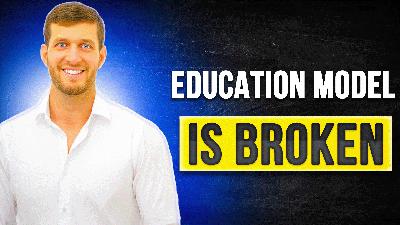
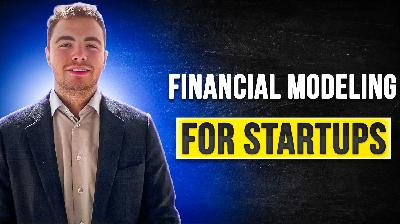
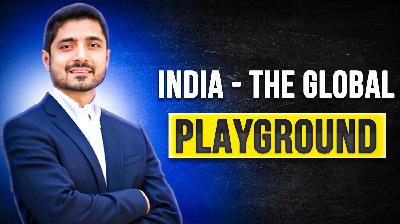
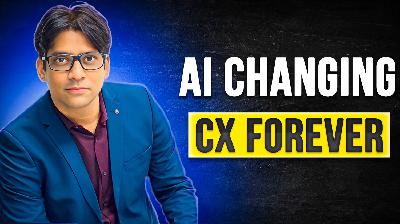
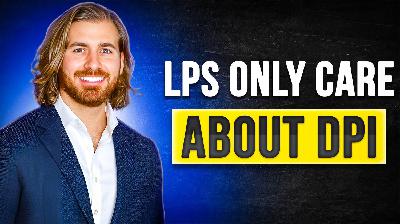
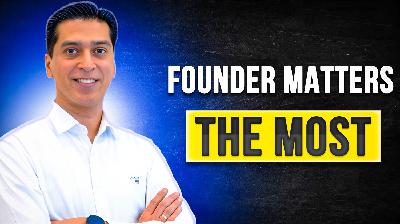


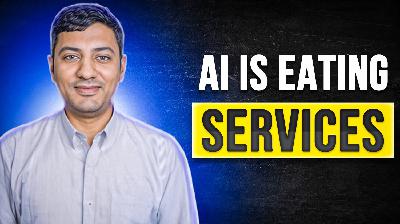
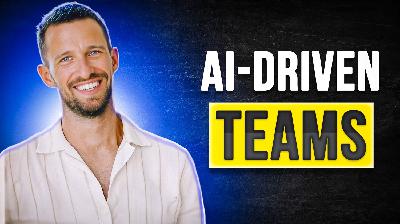
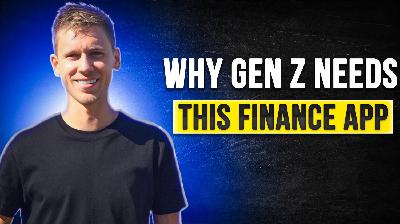
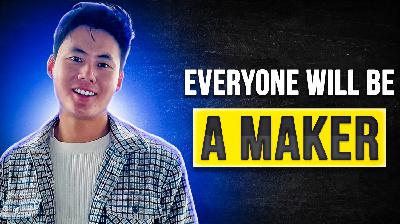

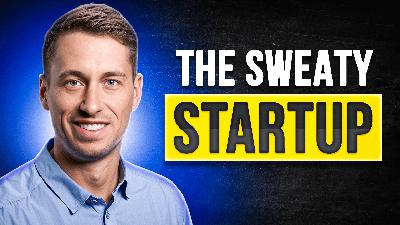
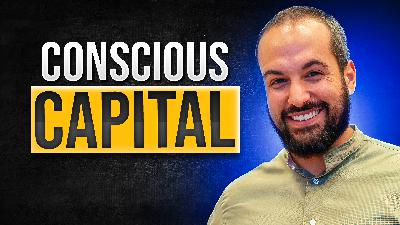
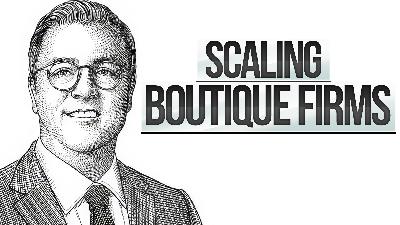
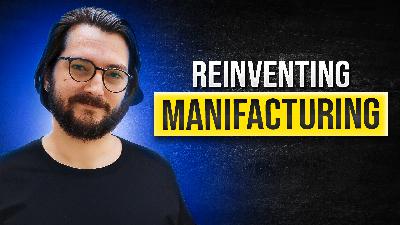
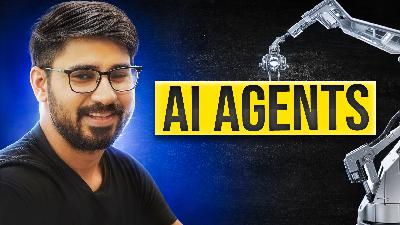
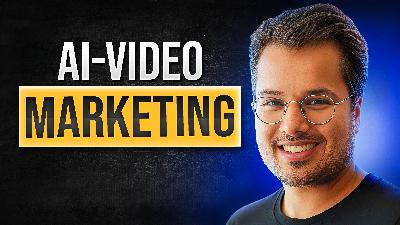


The podcast is really interesting. I would encourage you to read the article here https://triare.net/insights/nfc-payment-solutionsvnmn/. I would also add that the most important reason why NFC is a popular solution is that you can pay contactless, even with a smartphone. NFC can also be used for security.
Cool podcast, well done the author, I heard a lot of useful information)